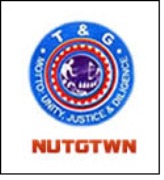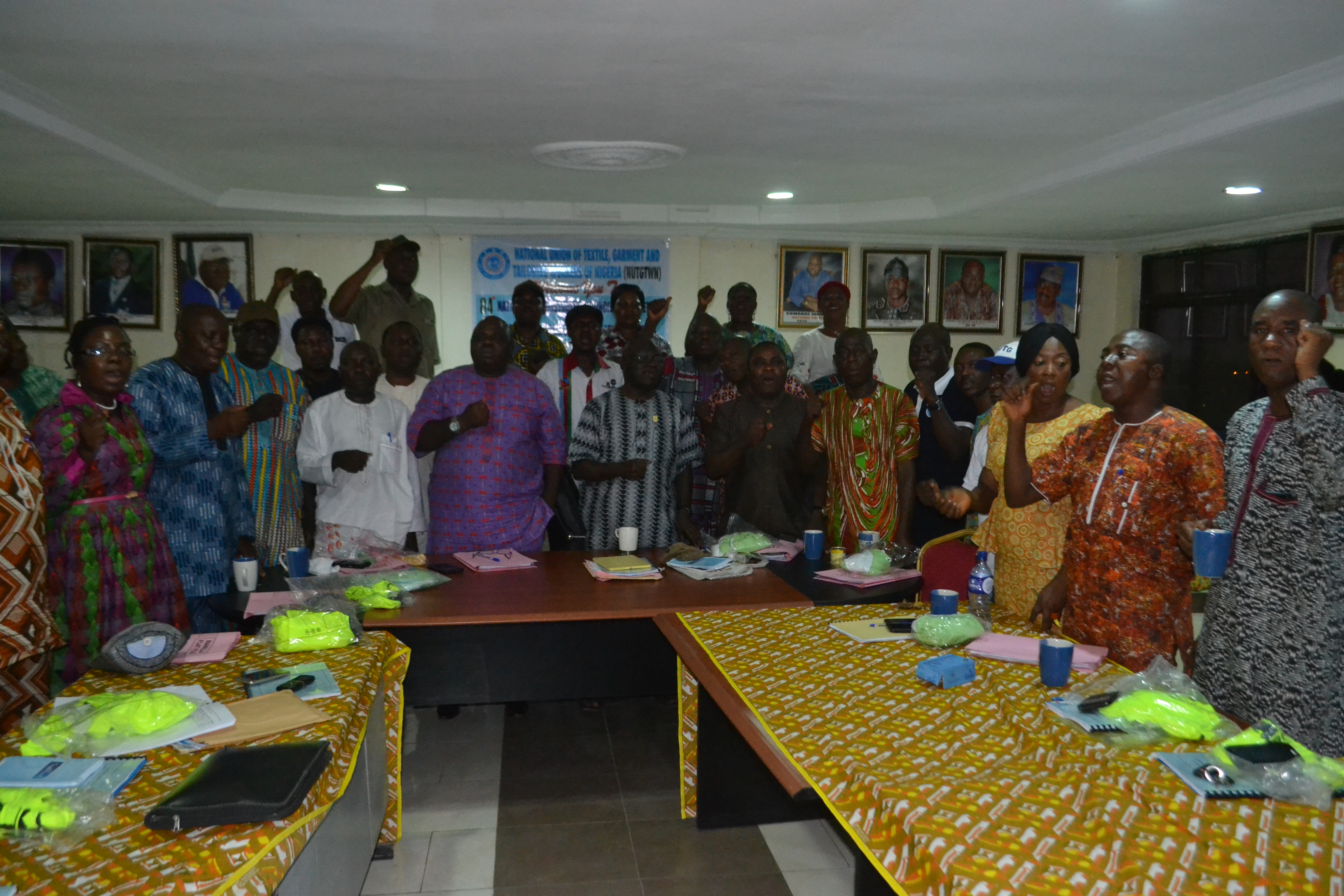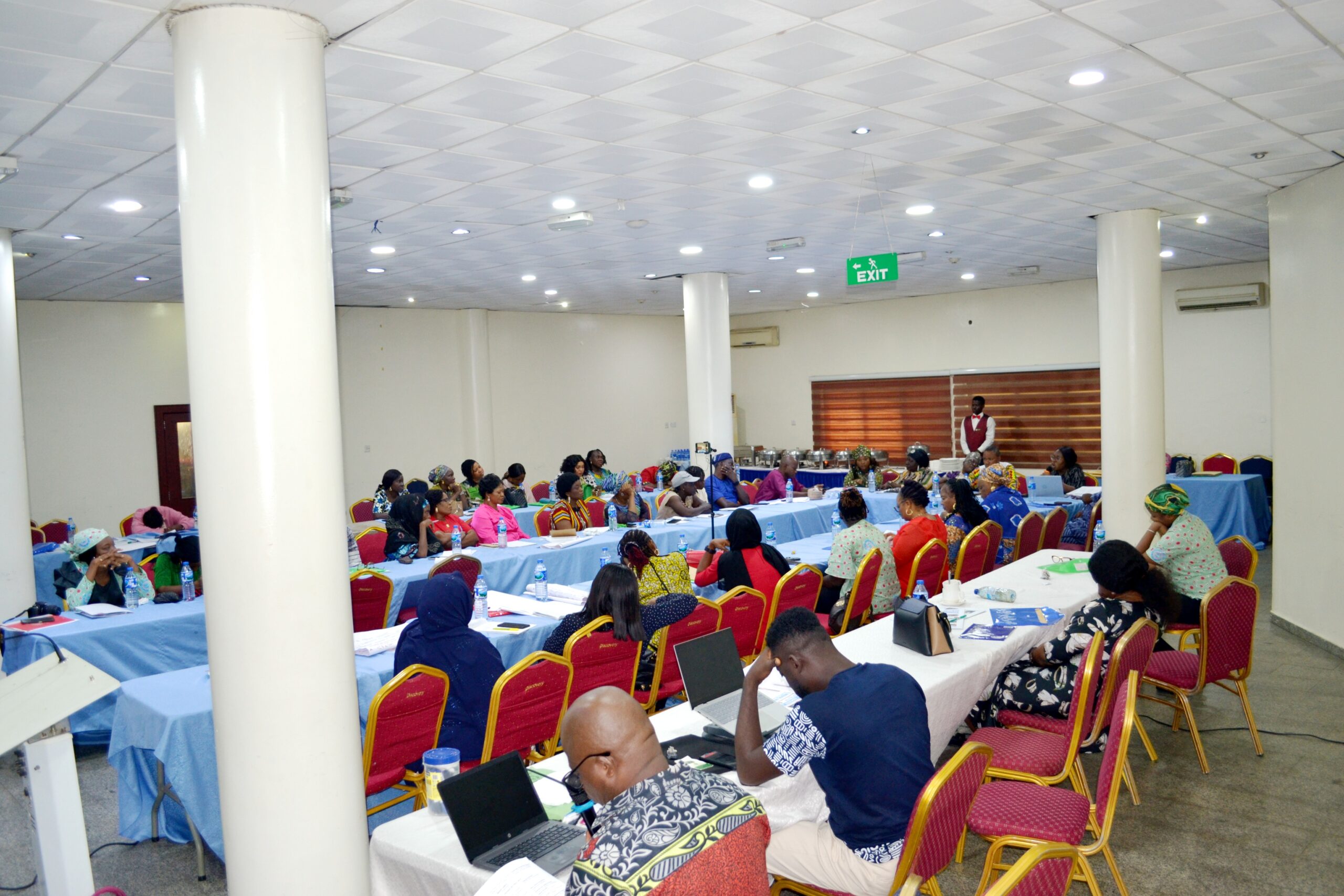COMPLIMENTS
· The President, NUTGTWN, Comrade John Adaji and other members of the National Executive Council (NEC) of the Union.
· The Honourable Minister of State for Industry, Trade and Investment, Hajia Aisha Abubakar
· Senior officials of the Federal Ministry of Industry, Trade and Investment; Director General, Nigeria Textile Manufacturers Association, Managing Director, BOI and other stakeholders.
· Distinguished Comrades and gentlemen of the press
INTRODUCTION/APPRECIATION
Let me join my President to formally welcome Hajia Aisha Abubakar, the Honourable Minister of State, Federal Ministry of Industry, Trade and Investment to Textile Labour House, Kaduna, and National Secretariat of the Union. This visit is historic. This year marks the 40th anniversary of our great union. NUTGTWN was formed as an industrial union affiliated to NLC in 1978. We are also affiliate of IndustriALL Global Union made up of 50 million workers in 140 countries in the mining, energy and manufacturing sectors.
We once again appreciate President Muhammadu Buhari through the Honourable Minister of State for his effort and commitment to revive the textile industry. President Buhari made the revival of textile industry and manufacturing sector his cardinal campaign programme. Through the activist facilitation of the Vice President, Professor Yemi Osibanjo, Honourable Minister of Industry, Trade and Investment, Dr. Okechukwu Enelamah and the Honourable Minister of State, Hajia Aisha Abubakar, President Buhari administration has initiated a number of measures aimed at industry revival.
We commend in particular the Honourable Minister of State, for her activism and commitment to the revival of the textile industry. She is truly a Comrade Minister who is also on the road to inspire productivity and industry not in the office.
This is the second factory visit of the Honourable Minister of State to Kaduna. The Honourable Minister of State had also visited some of the factories in Kano and Lagos to assess the situation, establish quality and capacity.
AFRICA INDUSTRIALISATION DAY (AID)
For the last two years, the Federal Ministry of Industry, Trade and Investment has been partnering with the Union and other stakeholders in the commemoration of the Africa Industrialisation Day (AID) on 20th November. 2017 Africa Industrialisation Day was quite significant as it witnessed the attendance of both the Honourable Minister, Dr. Okechukwu Enelamah and the Honourable Minister of State, Hajia Aisha Abubakar.
NO DEVELOPMENT WITHOUT INDUSTRY
The point cannot be overstated. There cannot be development without industry. Only industry can provide sustainable jobs and living wages and necessary revenues for government to provide the needed infrastructure for development. For a diverse country like Nigeria, Industry is also a unifier. There was once a Nigeria in which we have textile industry in all the geo-political zones of the country. This is why our union s a Pan-Nigerian.
For Africa to meet the Sustainable Development Goal 2030, especially SDG 9 dealing with industry and innovation, Africa Continent must innovate and industrialize. Africa must copy China’s industrialization drive which has within 20 years moved over 500 million people out of poverty through sustainable employment and wage-led manufacturing and industrialization. Africa must make what it consumes, otherwise it will be consumed by the rest of the world.
SOME MEASURES TO REVIVE THE INDUSTRY
We commend the Executive Orders issued by the Federal Executive in line with the promise of President Buhari on the ease of doing business. Of special importance to textile industry is the order mandating Government agencies to spend more of their budgets on locally produced goods. This singular order would help in the recovery of the textile and garment industry if complied with.
ECONOMIC RECOVERY AND GROWTH PLAN (ERGP)
We acknowledge and commended the Federal Government of Nigeria for launching the Economic Recovery and Growth Plan (ERGP). However, it is surprising the National Cotton, Textile & Garment (CTG) policy was not built into the ERGP. The government should ensure the implementation of Cotton, Textile and Garment (CTG) policy as adopted by the Federal Government since 2014. The major highlight in that policy is that we must ensure that there is uninterrupted electricity supply to textile industry, as well as other manufacturing industry.
CHALLENGES
Inspite of the efforts by the Federal government, the textile industry is yet to revive. Only recently, the industry recorded about 700 direct job losses due to retrenchment in some of the remaining factories.
Major Challenges include;
SMUGGLING
There is high influx of counterfeit and smuggled goods due to weak enforcement of import prohibition policy. The Federal government should do what is being done on rice importation to textile. We need a Special Task Force against smuggling just as on Rice.
PATRONAGE
There is low patronage inspite of the Executive Orders issued by the Federal Executive. The challenge is for the Federal Government to ensure that its Ministries, Departments and Agencies make the executive orders a reality in patronizing locally produced textiles. The police and Customs department should stop buying officers uniforms from Bangladesh and China, when the surviving textile factories can produce at home.
INDUSTRIAL POLICY
There should also be sustainable industrial policy in place for the country. All the things that led to the death of our industries can be traced to inconsistent industrial policy. There should be a sustainable industrial policy emphasising the need to add value to cotton rather than importing finished goods or textiles from abroad.
RAW MATERIAL
As much as possible, we must ensure availability of raw material. It is an irony that Nigeria today is facing the problem of cotton. There should be abundant production of cotton locally. We have to give incentives to local farmers or cotton growers to see the need to produce raw materials, as well as food crops.
NEED FOR TRAINING AND RE-TRAINING OF WORKERS
The Nigerian Labour market offers a workforce estimated at over 69 million. This is a robust human resources base for trainable on-the-job Labour guaranteeing a reliable human resource base for present and future investors in the sub-sectors.
We commend the Bank of Industry (BOI) for the years-long mutually rewarding collaboration with union in the area of capacity building.
NUTGTWN organizes workers engaged in manufacture of textile including the preparation of textile fibre for spinning, weaving and finishing, knitting mills, cottage, rope twine and thread industries, Manufacturer of carpets, rugs, pp woven sacks, linoleum, artificial leather, water-proofing fabrics and jute mills. We have thousands of organized self-employed tailors across the country.
EXPAND THE NATIONAL INDUSTRIAL POLICY & COMPETIVENESS ADVISORY COUNCIL
Industry and investment are too important to be left with investors alone. President Muhammadu Buhari has commendably set up National Industrial Policy and Competitiveness Advisory Council. The Council must be inclusive in its composition. Industrial Policy Council must have three components; economic, sustainability and the environment. There are active investors whose interests are mainly economic.
The Federal government should include critical stakeholders like trade unions and state government representatives on the Council to address the critical issues of sustainable production and job creation and the environment.








